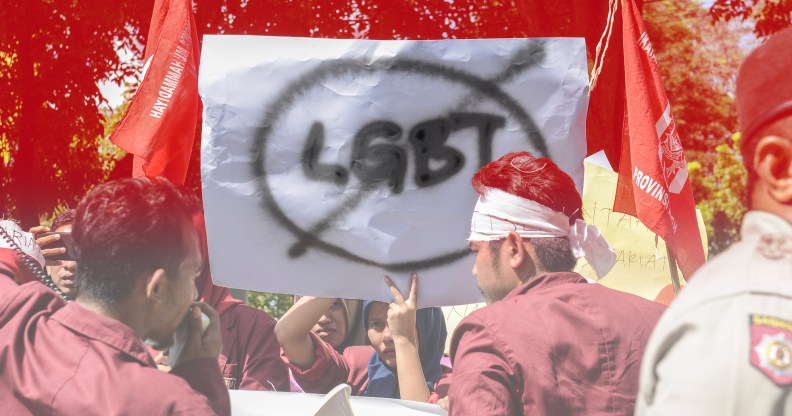Indonesia proposes ‘dangerous’ ban on LGBTQ+ media and investigative journalism

In 2022 Indonesia’s parliament passed a new criminal code making all sex outside of marriage punishable by up to a year in prison. (Getty)
Indonesia’s parliament is proposing revisions to a broadcast law that would ban investigative journalism and LGBTQ+ content.
The latest revision to the 2002 legislation, first discussed in 2020, aims to ban displaying LGBTQ+ or “negative behaviour or lifestyles that potentially harm the public,” including violence.
Indonesia’s Press Council, which was not consulted during the bill’s drafting process, said the plans would have a serious impact on press freedom, Reuters reported.
Arif Zulkifli, the head of the council’s law and legislation division, told the news agency: “Indonesia’s press law says there must not be any censorship or banning of journalism. So this is contradictory. The impact on press freedom is very serious.”
Move denounced as ‘dangerous’
The chairwoman of the press council, Ninik Rahayu, added her dismay, saying if the bill becomes law, there “there will be no press independence,” while filmmaker Joko Anwar described the proposal as “dangerous” and “impossible” to implement.
Bayu Wardhana, the head of the association of independent journalists, is also concerned.
“It will mean that we, as journalists, will no longer be able to reveal important stories, such as corruption, nepotism and environmental crimes.”
Nico Siahaan, a commission one member, which is overseeing the bill’s passage through parliament, said the proposed law will be robustly debated.
“We don’t want to give the impression that we are homophobic, and monitor excessively,” he said.
Indonesia still criminalises the LGBTQ+ community
While there a no national sodomy law in the south east asian nation, and private consensual homosexual acts are not prohibited, same-sex activity is against the law in the province of Aceh, under repressive Sharia law. The gender expression of trans people is also outlawed, with harsh sentences handed down to anyone convicted.
In December 2022, the Indonesian parliament passed a criminal code, which will come into effect in 2025, that makes all sex outside marriage punishable by up to a year in prison, leaving same-sex couples, who are not allowed to marry, at risk of prosecution.
How did this story make you feel?

